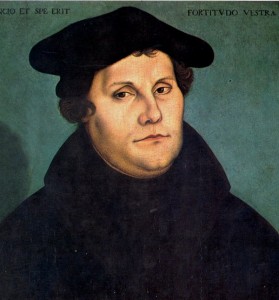Who was Theophilus? And why does the evangelist Luke talk about him so much?
Theophilus’ name came up last week, in the first reading for the Feast of the Ascension. In the introduction to the Acts of the Apostles, which is read for the Ascension, Luke writes:
In the first book, O Theophilus, I have dealt with all that Jesus began to do and teach, until the day when he was taken up, after he had given commandment through the Holy Spirit to the apostles whom he had chosen. To them he presented himself alive…
Acts 1:1
And once more, even before that, Luke brings up the mysterious character. In fact, Luke begins his Gospel—the third gospel, which includes the infancy narrative and stories of Jesus’ early life—with a dedication to Theophilus:
Inasmuch as many have undertaken to compile a narrative of the things which have been accomplished among us, just as they were delivered to us by those who from the beginning were eyewitnesses and ministers of the word, it seemed good to me also, having followed all things closely for some time past, to write an orderly account for you, most excellent Theophilus, that you may know the truth concerning the things of which you have been informed.
Luke 1:1-4
Actually, we aren’t exactly sure who Theophilus was. The name, taken from the Greek, means “lover of God” or “friend of God”. But is Theophilus a real person, a friend of Luke’s? Or is it, as some have speculated, an honorific title which can be applied to anyone who fits that profile—the early Christians, whom Luke was addressing, and later readers of the Gospel narrative?
Among the common speculations:
In the Coptic tradition, “Theophilus” is a real person, a Jew from Alexandria, and not merely an honorary title.
Some argue that Theophilus was an important official, because Luke referred to him as “most excellent.” It was common for Hellenistic writers to dedicate their work to a benefactor or sponsor who had helped to finance his research and writing. According to that view, Luke’s intended audience was a more highly educated population of Romans. Luke uses the tribute“most excellent” two more times in Acts, each time in reference to specific individuals. In Acts 24:2 he writes:
“Tertullus began to accuse him, saying: ‘Since through you we enjoy much peace, and since by your foresight, most excellent Felix, reforms are being made for this nation….”
And in Acts 26:25, he writes:
“But Paul said, ‘I am not out of my mind, most excellent Festus…’”
Some Scripture scholars suggest that Theophilus may have been a converted Roman official. Paul Maier, a scholar in the Lutheran tradition, believes the title may refer to Titus Flavius Sabinus II, a former Prefect of Rome and older brother of the Roman governor Vespasian. With that background, Maier has featured Theophilus in his historical novel The Flames of Rome.
One less popular theory is that Theophilus may have been the apostle Paul’s lawyer, during his trial in Rome.
In any case, Luke’s reference to Theophilus made it a popular choice for names and titles; and there are records of saints, martyrs, and church officials who bore the name.
- Theophilus of Antioch was bishop of Caesaria Maritima in the second century, and was the teacher of Clement of Alexandria. He is best known for his opposition to the quartodecimans, who believed that Easter should be celebrated on the Jewish Passover and not necessarily on a Sunday. He is mentioned by name in the writings of Eusebius and St. Jerome. His feastday is celebrated on March 5.
- By one account, Theophilus was one of the soldiers assigned to guard a group of Egyptian Christian prisoners held during the persecution of Decius in the third century. Five soldiers, including Theophilus, admired the Christians’ bravery and exhorted a Christian wavering under torture to stand fast in his faith. For that, the five—Theophilus among them—were added to the prisoners and were beheaded.
- Theophilus of Alexandria served as patriarch of the See of St. Mark at the end of the fourth century. He is best known for his virulent campaign against the heresies of Origen.
- St. Theophilus of Adana, also known as Theophilus the Penitent, was a sixth-century cleric who, according to legend, made a deal with the devil in order to gain an ecclesial title. His story is the inspiration for the Faust legend. His feastday is celebrated on February 4.
- The martyr Theophilus was admiral of the Christian fleet at Cyprus when the Saracens invaded the island in 788 and captured him. He was imprisoned for a year, then tortured and beheaded.
- St. Theophilus de’ Signori was a Franciscan missionary and teacher who lived from 1676 through May 21, 1740. He founded several retreat houses for the Franciscans, and was canonized in 1930.











